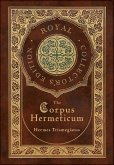The name of Basil Valentine is most often associated with the Twelve Keys and the Triumphal Chariot of Antimony. The identity of the writer of the works coming under this authorship has not been positively established, but these writings draw on the developments in alchemy during the late 16th and early 17th centuries, particularly Paracelsian ideas and the use of allegorical imagery. One work ascribed to Basil Valentine which has so far escaped attention is entitled Azoth. Some of the images which illustrate this work are now so well known, often used in modern books on alchemy and esotericism in general. Though these images have often appeared in print recently they are not presented in context, and the work in which they originally appeared is almost totally unknown. Indeed, the whole sequence of fourteen emblematic images is rarely shown in its entirety in modern books. Because of this it has been almost impossible for people to make a true assessment of this triumph of symbolism. This present book shows the entire series in its context with my translation of the relevant part of the text which clearly links to the images. For this book Adam McLean created coloured versions of the engravings. Also included is one of the sets of original woodcuts, as well as a reworking of the symbolism from the engravings in Mylius' Philosophia reformata of 1622.
Hinweis: Dieser Artikel kann nur an eine deutsche Lieferadresse ausgeliefert werden.
Hinweis: Dieser Artikel kann nur an eine deutsche Lieferadresse ausgeliefert werden.








